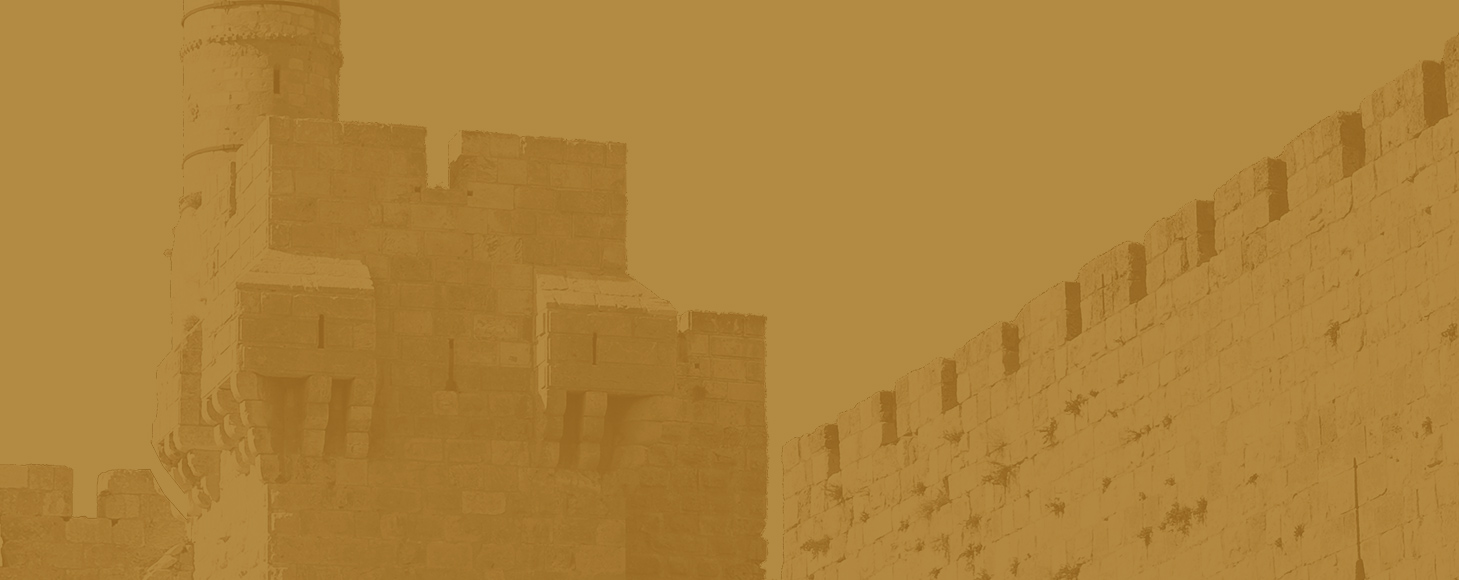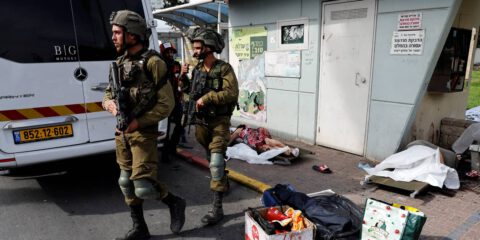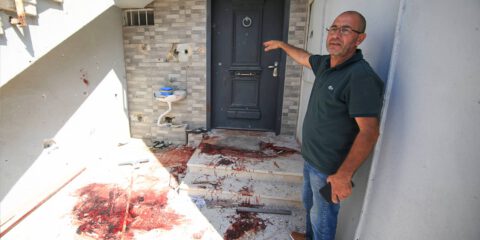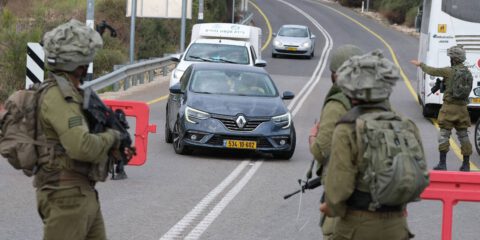קיימות תוכניות נחמדות רבות לעתיד רצועת עזה, אבל האמת המרירה היא שהחמאס ימשיך במאבקו להשמדת ישראל, וישראל תמשיך להגן על עצמה.
האירועים שהובילו להתקפת הטילים של חמאס על ירושלים החלו להתגלגל בשבוע שהיה מועד לפורענות בכלל העולם המוסלמי, והתמזגו בו חמישה תאריכים ואירועים שכל אחד מהם הוא גורם המזמן מתיחות בפני עצמו, ויחד הם יצרו את מה שהאמריקאים מכנים ״סערה מושלמת״ (perfect storm):
- אבו מאזן, בשבוע שקדם לשבוע קריטי זה (ב-30 לאפריל), ביטל את הבחירות הפלסטיניות שאמורות היו להתקיים במאי וביולי (לפרלמנט ולנשיאות). החמאס, שקיווה להצליח מאוד בבחירות אלה עד כדי מימוש חלומו להחליף את אבו מאזן כיו״ר נבחר של הרשות הפלסטינית עם רוב ברור בפרלמנט הפלסטיני, הפך למתוסכל וממורמר. ביטול הבחירות חיסל במחי יד את תקוותו של החמאס, תקווה שהתבססה על יחסי הכוחות שהיו צפויים בהצבעה לאור המצב הקשה של אבו מאזן וסיעתו (או נכון יותר, סיעותיו). תסכול זה, שאינו קשור לאירועי ירושלים, הפך לגורם מאיץ, ואולי הגורם הקובע להתנהגות הארגון בעזה בעקבות המתיחות בירושלים.
- בירושלים עלו אדי דלק כתוצאה מסכסוכי קרקעות המסעירים את העיר כבר זמן רב, בעקבות תביעות של יהודים לפנות משפחות פלסטיניות מבתיהן שבהם הן מתגוררות עוד מלפני מלחמת ששת הימים, בטענה שאלה אדמות שנרכשו על ידי יהודים לפני מלחמת השחרור (1948). בית המשפט העליון היה אמור לפרסם את החלטתו ביחס להוצאה מבתיהן של כמה משפחות בשייח ג’ראח ביום חמישי ה-13 במאי. מדובר בסכסוך בעלות שיש כמוהו בכל מקום בעולם, והוא יוכרע כנהוג במדינת חוק בבית המשפט.
- איש לא שם ליבו לכך שיום חמישי בשבוע זה הוא יום סיום הרמדאן ותחילתו של החג המוסלמי החשוב ״עיד אל פיטר״. שבוע סיום הרמדאן הוא תקופה רגישה בכל העולם המוסלמי, ובכל שנה הוא מביא איתו התנהגות אלימה הנובעת מרגישות דתית. בישראל רגישות זאת מתחככת עם ישראל בנקודות נפיצות, ובעיקר בהר הבית. כך כל שנה, בגלל התפילות מרובות המתפללים, יש בשבוע זה (הכולל את ליל אל קאדר) אירועים קשים ביו״ש בכלל, ובירושלים בפרט.
- בתחילתו של אותו שבוע (יום שני, ה-10 במאי) חל ״יום ירושלים״ הנחוג לפי התאריך העברי של שחרור ירושלים במלחמת ששת הימים. השנה חל יום זה בתחילתו של השבוע האחרון של הרמדאן, מקרה ייחודי שיכול לחזור על עצמו פעם בתריסר שנים. ביום זה צועדים חוגגים לא מעטים במצעד דגלים ססגוני העובר בשני צידי העיר, ומזכיר בתופים ובמחולות לפלסטינים, ולרחוב הערבי בכלל, את כישלונם ב-1967 ואת האחיזה של ישראל בירושלים השלמה, כולל החלק המזרחי, שם מתקיים חלק מהחגיגות.
- כדי להשלים את תמונת לוח השנה המשוגע נחוג ביום השבת בסיומו של אותו שבוע ״יום הנכבה״ (בעברית ״יום האסון״, או בהשאלה מעברית ״יום השואה״). זהו יום האבל הפלסטיני על תוצאות המלחמה ב-1948, כי ב-15 במאי פקע מנדט הבריטי ובאה לעולם מדינת ישראל על פי התאריך הלועזי.
המשטרה בכמה החלטות המעלות סימני שאלה, בעיקר ביחס להגבלות באזור שער שכם ובניסיון למנוע הגעת מתפללים מקרב ערביי ישראל להר הבית, כנראה תרמה למתיחות, וזו נוצלה על ידי גורמים מקומיים ואולי לובתה על ידי זרים.
החמאס, שעבר כמה חודשים קודם לכן בחירות לא פשוטות שבהן ניצח על חודו של קול יחייא סינואר, הנחשב כמי שמוכן להסדרים תמורת רווחתה ובניינה של עזה, ראה כאמור בעיניים כלות כיצד אבו מאזן מבטל את הבחירות שבהן הוא קיווה להשתלט על הרשות ועל יהודה ושומרון. במצב שנוצר החליטו ראשי הארגון להוכיח לחברה הפלסטינית, ואולי לעולם הערבי כולו, כי הם הקובעים את סדר היום הפלסטיני, והציגו אולטימטום לממשלת ישראל ולפיו הארגון יגיב בירי אם לא תשנה ישראל את התנהגותה בירושלים.
החמאס ניסה להפוך את עצמו ל״מגינה של ירושלים״ – מעזה, ולשנות את מעמדו במערכת הפלסטינית ואולי אף בעולם המוסלמי.
כמצופה, האולטימטום נענה בשלילה.
כדי לעמוד במילתו שבר חמאס את כל ההסכמות שנוצרו לאורך הזמן בעקבות המבצעים השונים וירה טילים לעבר ירושלים, מה שהביא לפתיחת מבצע “שומר החומות”.
התוצאה הייתה שישראל עמדה מול שלושה אזורי חיכוך:
א. ירושלים – שם התפרעויות המקומיים היו רבות וגדולות מבעבר.
ב. בעזה – שם התפתח מבצע שבו חמאס יורה לעבר מדינת ישראל אלפי רקטות וטילים (כ-4,400) ופצצות מרגמה וישראל הורסת את תשתית הארגון ופוגעת במפקדיו, ואגב כך הורסת גם מבנים אזרחיים ששימשו את הארגון או עמדו בסמוך למתקניו.
ג. בתוך ישראל – ערביי ישראל שברו את מסגרות החיים בצוותא לרוחב כל המדינה בפרעות שבהן נהרגו בלינץ’ יהודים, נשרפו בתי כנסת, נהרסו דירות של יהודים והושמד רכוש יהודי רב. בתגובה, בכמה אירועים בודדים אך מסוכנים ביותר לחברה בישראל, בוצע לינץ’ בערבים ישראלים על ידי קבוצות קיצוניות בחברה היהודית.
הניסיונות להבעיר את הגדה ולייצר צעדות המוניות או לגרור את ישראל לעימות על ידי ירי של קטיושות בודדות מלבנון ושליחת מל״ט (כנראה איראני) מכיוון ירדן – לא צלחו. ביהודה ושומרון נותר שקט יחסי, ובגבולות לא נוצר עימות של ממש.
לעומת זאת, האירועים בירושלים ובעזה הצליחו כאמור לגרור את ערביי ישראל לנקוט אלימות נגד שכניהם היהודים. אם כי אין זה ברור עדיין עד כמה הייתה כאן מעורבות של חמאס, אין ספק שלירי מעזה ולתגובת ישראל הייתה השפעה על פרוץ האירועים.
לאחר הפסקת האש בעזה ובתום הפרעות וההפגנות בתוך מדינת ישראל, מערכת היחסים בין המדינה לבין הערבים החיים בתוכה כאזרחים זקוקה לעיון מחדש. סביר שאזרחי ישראל היהודים לא ישובו במהרה למערכת היחסים הרגילה עם המיעוט הערבי, שנראה היה שהוא הולך ומשתלב לאיטו, גם אם תוך חריקות אך בנחישות, בחיי הכלכלה הישראלית. כך למשל מערכת הבריאות מלאה בבעלי מקצוע רפואיים מקרב ערביי ישראל (כ-25 אחוז מהרופאים ו-30 אחוז מהאחיות והאחים), יו״ר הבנק הוותיק ואחד משני הגדולים בישראל הוא ערבי, ובמרכזי הקניות הגדולים רבות מהמוכרות הן ערביות שמופיעות לעבודה בלבוש מסורתי ואין איש המלין על כך. גם בתחום הפוליטי יש נכונות למעורבות ערבית רחבה יותר, והפרעות החלו בזמן שהמערכת הפוליטית הישראלית גילתה נכונות חסרת תקדים לשילוב מפלגה ערבית בממשלה, גם אם היה הדבר מחוסר ברירה.
אומנם החברה הערבית בישראל נפגעה קשה בזמן משבר הקורונה, בין השאר משום שמרובה שם העבודה ללא דיווח לשלטונות המס ולכן גם הסיוע שקיבלו עובדים אלה מן המדינה היה מוגבל, אך בסופו של דבר נראה שישראל משלמת באירועים אלה גם את מחיר כישלונה במיגור הפשע והאלימות בחברה הערבית. אלימות שחלקה הגדול מבוצע ומשחק לידי משפחות פשע שהשתלטו על הרחוב הערבי, וחלקה פרי מסורת שלפיה נושאים מסוימים, כמו ריב בין חמולות או התנהגות מינית לא ראויה במשפחה, נפתרים בדם, קרי בחיסול כנקמה או כאקט של השבת הכבוד (בזה אין הם שונים מהחברות הערביות האחרות במזרח התיכון, שכמעט כולן אלימות בדרך זו או אחרת).
אין זה מצדיק את כישלונה של המשטרה לחסל את משפחות הפשע כגורם משפיע על הרחוב הערבי, והיא ודאי חייבת לאסוף את הנשק הרב שהצטבר בבתי האזרחים הערבים כמעין תחביב שמקנה כבוד ויקר לבעליו. אבל ניתן לומר בצער שחלק מהכישלון להתגבר על משפחות וכנופיות הפשע נובע מחוסר שיתוף הפעולה של החברה הערבית עם המשטרה, והתגייסות המנהיגים הפוליטיים שלה להגנה על כל אלימות נגד יהודים ומוסדות המדינה. טענותיהם נגד המשטרה על שאינה עושה מספיק נכונות, אך טענות המשטרה שהם, המנהיגים, חלק מהבעיה כי אינם רוצים להיות חלק מהפתרון, נכונות עוד יותר.
נראה שהגישה הנכונה לבעיה מצריכה שילוב של השקעות כדי לשפר את תנאי החיים של ערביי ישראל, עם חיזוק משמעותי של המשטרה לצורך הטיפול המשטרתי באוכלוסייה הערבית בישראל. אין ספק שהמהלך יביא להגברת החיכוך עם האוכלוסייה הערבית, על כל הבעייתיות שמהלך כזה ייצור, אך אין להירתע מכך כדי לאפשר למשטרה לאסוף את הנשק הרב שהצטבר ביישובים הערביים ולחסל את משפחות וכנופיות הפשע המאיימות על חיי התושבים, וכפי שהסתבר גם היהודים. עם כל זאת, כדאי להימנע מהטעות הרווחת אצל רבים כאילו שיפור רמת החיים וחיסול הפשע בקרב ערביי ישראל יביא לכך שהם יקבלו בברכה את קיומה של מדינת הלאום של העם היהודי שבתוכה הם חיים. נכון להיות צנוע בציפיות; הישגים שכאלה אולי יקלו עליהם לחיות בקרבה ללא אלימות פנימית ובדו-קיום שטחי עם הסביבה היהודית המקיפה אותם, אך לאור האירועים האחרונים קשה לראות הישג עמוק או רחב יותר בשנים הקרובות בכל הקשור לקבלתה של המדינה היהודית כעובדה שרירה וקיימת.
האתגר שנוצר בנוגע ליחסי ערבים ויהודים בישראל קשה, מורכב וכנראה יהיה איתנו עוד זמן רב. התפרעותם של ערביי ישראל הייתה ההפתעה הגדולה של המבצע, שבו נכשל החמאס בכל ניסיונותיו להפתיע את ישראל. מסתבר שהצירוף של רגשות לאומיים גואים, רגישות דתית בגלל ירושלים וחוסר יכולת להתמודד עם קבוצות פורקות עול בחברה הערבית בישראל הוא צירוף שהביא ויביא לאירועים קשים בין יהודים לערבים. צריך להכיר בעובדה כי גם רבים מהערבים אזרחי ישראל מרגישים תחושת אי נחת גדולה עקב עצם קיומה של מדינה ריבונית ליהודים; מדינה המעניקה להם חיים טובים יותר מאשר כל מדינה ערבית, אבל היא לא שלהם וקשה להם להזדהות איתה.
אם האתגר שהעמידו ערביי ישראל די ברור, אם כי פתרונו מורכב כאמור, הרי שתוצאות המבצע בעזה מורכבות יותר וקשה לקבוע לאן יוליכו, כי הן תיקבענה על ידי מעשים בעתיד, של ישראל ושל חמאס.
התוצאות של המבצע אינן ברורות, בין השאר כי מדובר בשני מבצעים שכל אחד מהם כיוון לרמה אחרת. התנהלו כאן במקביל מעין שתי מלחמות מבחינת הגיונם של שני הצדדים:
– חמאס ניהל מבצע שכולו ברמה האסטרטגית/מדינית. תכליתו הייתה שינוי מעמד החמאס על ידי ניצול הרגישות בירושלים, והפיכת הארגון על ידי ירי חסר הבחנה לישראל ל״מגן ירושלים״. זה היה קרב על התודעה, בלא שום קשר להישגים בשדה הקרב. מבצע שתכליתו יחסי ציבור, באמצעות הרג אזרחים ישראלים ופלסטינים (חייבים להפנים שהחמאס מרוויח מהרג אזרחים פלסטינים לא פחות ממה שהוא מרוויח מהרג אזרחים בישראל, ואולי אף יותר).
– ישראל ניהלה מבצע שתכליתו אופרטיבית עם תקווה אסטרטגית. המשימה הייתה להחליש מאוד את כושרו הצבאי של החמאס ואת יכולתו לחדש כושרים אלה לאחר המבצע, בתקווה שהמכה תהיה חזקה דיה עד לכדי הרתעתו של הארגון מלפעול בעתיד נגד ישראל. מבצע שתכליתו פיזית ומדידה: הריסת יכולות ותשתיות, וחיסול מפקדים ומחבלים של החמאס.
מאחר שהצדדים ראו מול עיניהם שתי מלחמות שונות, אין להתפלא ששני הצדדים טוענים לניצחון, ואין סתירה בין תחושותיהם והאמירות שלהם.
בעקבות המבצע החמאס אומנם נתפס אצל הפלסטינים ובעולם הערבי כמי שהקריב לא מעט כדי להגן על ירושלים, וישראל נתפסת כמי שנכשלה כי אין לה שום הישג בתחום יחסי הציבור (P.R.), שהרי ראשי החמאס מהלכים חופשי ברחובות עזה וטילים רבים מאוד נורו לעבר ישראל עד הרגע האחרון של המבצע.
ישראל מסכמת בצדק את המבצע בשביעות רצון, כי צה״ל הצליח לסכל את כל ניסיונות התקיפה של החמאס מלבד ירי הטילים, שרובם הגדול (למעלה מ-90 אחוז) יורטו על ידי כיפת ברזל, לכן הנזק בישראל מועט מאוד. לעומת זאת, ישראל פגעה קשות בתשתית החמאס וביכולתו לייצר בעתיד טילים ורקטות, הרגה לא מעט מאנשיו כולל מפקדים חשובים בדרג הבינוני, ולתושבי עזה ברור שהחמאס אולי יכול לטעון שהוא מגן ירושלים אבל אין ביכולתו להגן על עזה.
נוכח המצב המוזר הזה שבו שני הצדדים חשים כמנצחים ומרגישים לכאורה ובאופן פומבי בנוח עם תוצאות המבצע, ישראל חייבת לפעול כדי להחזיר לעצמה את הילת המדינה הבלתי מנוצחת, תפיסה המשפיעה מאוד על מעמדה במרחב. ישראל איבדה משהו ממעמדה זה נוכח תוצאותיו הגלויות של המבצע. אלא שבמזרח התיכון ראוי על בסיס הניסיון המצטבר להבדיל בין התוצאות המוצהרות לבין התוצאות הסמויות שאולי תסתברנה בעתיד. במקרה זה למשל, הבנה של ראשי החמאס שהם אינם יכולים להרשות לעצמם לשלם מחיר דומה בעתיד מבחינת הפגיעה בארגון וביכולותיו. זה הלקח המרכזי שאפשר ללמוד מהמבצע בלבנון ב-2006, עת הצהיר נסראללה בפומבי על ״ניצחון אלוהי״ של חיזבאללה, אך הסביר לבסוף שלו היה יודע כיצד ייגמר המבצע – לא היה מתחיל אותו. לישראל יתרון מבחינה זאת שחמאס אינו יכול לשנות את התוצאות הפיזיות והמוחשיות של צה״ל, ולעומת זאת מדינת ישראל יכולה (ולדעתי אף צריכה) לשנות את התחושות אצל הפלסטינים ובעולם הערבי.
ֿ
ישראל אינה צריכה להמתין להתפכחות פומבית של ראשי החמאס, שאולי כלל לא תגיעה. עליה להבהיר במעשים את מידת ניצחונה בשתי המשוואות (המדינית והצבאית):
- להבהיר כי החמאס לא הצליח לשנות מאומה בסטטוס קוו בירושלים. לשם כך יש לחזור לשגרה בהר הבית, כולל ביקורי יהודים (שכבר החלו) ונוכחות משטרתית, ואף הפעלת כוח בהר הבית אל מול כל השתלחות פלסטינית. בה בעת יש להתכונן למהלכים קשים בעקבות פסקי דין שאולי יצריכו פינוי תושבים פלסטינים הן משייח ג’ראח והן מסילואן. לשם כך יש לתגבר מאוד את כוחות המשטרה; אסור כי אלה יתגרו בתושבים באופן שאינו תורם לשקט, אבל יהיו מוכנים להגיב עם הרבה כוח לכל הפרת סדר. הניסיון מלמד שכוחות גדולים המוצבים מראש מקטינים מאוד את הסיכון שיוצר מצב קשה שיצריך ירי חי והמתיחות תגבר בשל כך. את הצלחתו האסטרטגית לכאורה של חמאס ישראל יכולה לבטל על ידי סדרת פעולות די פשוטות בירושלים (בידיעה שהן יכולות להוביל להידרדרות מקומית ואולי אף מעבר לכך, כפי שאיימו סינואר ונסראללה בפומבי). חשוב שיהיה ברור לאחר זמן קצר כי החמאס לא השיג שום הישג בירושלים, שאם לא כן יגבר תיאבונו.
- להקפיד על מימוש ההרתעה בעזה עצמה על ידי תגובה נמרצת לכל פעילות חמאס שעד כה התקבלה בהרמת כתף או בירי לא משמעותי של צה״ל. אין לאפשר לחמאס לטרטר את תושבי עוטף עזה עם בלונים והפגנות חוצות גדר, ואם החמאס יעשה זאת צריך לפגוע באופן משמעותי במרכיבים השייכים לתשתית הארגון בלב עזה ובמנהיגי הארגון. צריך לצאת מההשתעבדות לעקרון ״התגובה הפרופורציונלית״, בידיעה ששבירת הנוהג הזה, המשחק לידי החמאס, תיענה באש הארגון למשך זמן ואולי אף בירי לטווחים רחוקים יותר, אפילו עד אשדוד ובאר שבע. על ישראל להבהיר בתגובותיה שהיא מוכנה לשאת במחיר מעין זה כדי להשיג הרתעה של ממש, הרתעה שתתבטא בכך שישרור שקט מוחלט סביב עזה. חשוב להדגיש: ההרתעה שישראל צריכה להשיג מחייבת לקיחת סיכונים (עד כדי חידוש המבצע) כדי להבהיר לחמאס את נחישותה של ישראל לקבוע כללים חדשים בין הארגון לישראל.
בתהליך ההסדרה, אם יתקדם בסיועה של מצרים, על ישראל להבהיר כי לא תאפשר את התחמשות החמאס, שאם לא כן תפגוש ישראל אויב חזק הרבה יותר בעוד כמה שנים במבצע הבא. במהלך כזה, ארוך טווח, על ישראל להשיב הביתה את גופות החיילים ואת שני האזרחים שעברו לעזה ומוחזקים ככל הנראה על ידי החמאס. דרישות אלה תסבכנה את המשא ומתן, שכנראה אף יתארך בשל כך, אך יש להתעקש עליהן כדי שההישג ההומניטרי החשוב לחמאס, שיבוא לידי ביטוי בפתיחתה של עזה לצורך בנייתה, יהיה שווה ערך להישג ההומניטרי הנדרש בישראל. אם ידרוש החמאס שחרור למעלה מאלף מחבלים מהארגון העצורים בישראל תהיה ישראל חייבת לחשב יתרונות וחסרונות, ואולי להימנע מהסדרה ארוכת טווח בשל כך. חשוב לזכור: תהליך הסדרה שכזה לא יפתור שום בעיה בסיסית בתוך עזה; זו תישאר צפופה (2 מיליון תושבים בשטח קטן מ-400 קמ״ר), ותושביה יישלטו על ידי ארגון טרור שימשיך לבנות את כוחו כדי לפגוע בעתיד בישראל, במקום לדאוג לבני עמו החיים בתנאים לא פשוטים. הרווח היחיד מההסדר הוא הגדלת פער הזמנים עד למבצע הבא, שיתחיל בעת שהחמאס ירגיש חזק מספיק להתמודד עם ישראל או כאשר הארגון יהיה זקוק להוכיח את חשיבותו. השקט מעזה אומנם יאפשר למדינת ישראל להתמקד בהכנות לאתגר האמיתי: הצירוף של נשק גרעיני באיראן ונשק מדויק בכמויות הולכות וגדלות בידי חיזבאללה ואיראן, אבל עזה תישאר פצע שידמם יום אחד באופן חריף יותר מאשר במבצע שהסתיים עתה.
שאלה קשה תעמוד לפתחם של מקבלי ההחלטות אם יסתבר לאחר זמן, במהלך הפסקת האש או ההסדרה, שיש בידי ישראל אפשרות לחסל את בכירי החמאס או הג’יהאד האסלאמי, או אם יתגלו מתקנים לייצור טילים ורקטות הפועלים בעזה. השאלה שתהיה היא האם ליזום את שבירתה של הפסקת האש לצורך חיסול מפקדי הארגונים הללו או לצורך מניעת התחמשותם מחדש. נראה שזה יהיה האתגר הגדול, כי החלטה חיובית תביא בסבירות גבוהה לסבב אש ארוך עם קשיים הנוגעים ללגיטימציה הבינלאומית, ולעומת זאת החלטה שלילית, שתאפשר את המשך ייצור הרקטות והטילים, תעמיד כאמור את ישראל במצב קשה באירוע הלחימה הבא. שאלה זאת של ״מתקפה מונעת״ הייתה ותהיה מסוג ההחלטות הקשות ביותר למנהיגות הישראלית בגלל הצדדים השליליים שיש הן בהימנעות והן במימוש ההזדמנות.
פורסם (באנגלית) ב-מגזין מוזיאק 14.06.2021
סדרת הפרסומים “ניירות עמדה” מטעם המכון מתפרסמת הודות לנדיבותה של משפחת גרג רוסהנדלר









 - בניית אתרים
- בניית אתרים